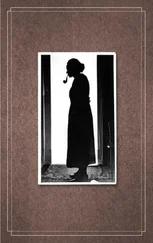Peter Høeg - Smilla's Sense of Snow aka Miss Smilla's Feeling for Snow
Здесь есть возможность читать онлайн «Peter Høeg - Smilla's Sense of Snow aka Miss Smilla's Feeling for Snow» весь текст электронной книги совершенно бесплатно (целиком полную версию без сокращений). В некоторых случаях можно слушать аудио, скачать через торрент в формате fb2 и присутствует краткое содержание. Жанр: Современная проза, на английском языке. Описание произведения, (предисловие) а так же отзывы посетителей доступны на портале библиотеки ЛибКат.
- Название:Smilla's Sense of Snow aka Miss Smilla's Feeling for Snow
- Автор:
- Жанр:
- Год:неизвестен
- ISBN:нет данных
- Рейтинг книги:3 / 5. Голосов: 1
-
Избранное:Добавить в избранное
- Отзывы:
-
Ваша оценка:
- 60
- 1
- 2
- 3
- 4
- 5
Smilla's Sense of Snow aka Miss Smilla's Feeling for Snow: краткое содержание, описание и аннотация
Предлагаем к чтению аннотацию, описание, краткое содержание или предисловие (зависит от того, что написал сам автор книги «Smilla's Sense of Snow aka Miss Smilla's Feeling for Snow»). Если вы не нашли необходимую информацию о книге — напишите в комментариях, мы постараемся отыскать её.
Smilla's Sense of Snow aka Miss Smilla's Feeling for Snow — читать онлайн бесплатно полную книгу (весь текст) целиком
Ниже представлен текст книги, разбитый по страницам. Система сохранения места последней прочитанной страницы, позволяет с удобством читать онлайн бесплатно книгу «Smilla's Sense of Snow aka Miss Smilla's Feeling for Snow», без необходимости каждый раз заново искать на чём Вы остановились. Поставьте закладку, и сможете в любой момент перейти на страницу, на которой закончили чтение.
Интервал:
Закладка:
I regain my balance on the floor. My legs feel like rubber. But I have the screwdriver out in front of me.
Urs comes out from behind the sack.
I can't think of anything to say. When I stagger out the door, he's still on his knees.
"Bitte, Fraulein Smilla, bitte…"
Subconsciously I must have been expecting some kind of alarm. Armed men in wait for me. But the Kronos is wrapped in darkness. I walk up through three decks without meeting anyone.
The stairway from the bridge is empty. Jakkelsen is nowhere to be seen. I brazenly enter the bridge deck, go through the door marked OFFICERS' ACCOMMODATIONS, arid open the door to the men's bathroom.
He's standing at the sink. He had been combing his hair. His forehead is pressed against the mirror, as if he wanted to make sure that the result would be especially nice. He was in the process of combing back the hair over his ears. But he's asleep. Unconsciously and pliantly his body follows the rolling of the ship, holding itself upright. But he's snoring. His mouth is open and his tongue is hanging out slightly.
I stick my hand into the breast pocket of his work shirt. I take out a rubber tube. He slipped into the bathroom and had a little fix to keep up his courage. Then he tried to spruce himself up. But he got tired.
I kick his legs out from under him. He falls heavily to the floor. I try to pull him up, but my back hurts. I only manage to lift up his head.
"You overlooked Kützow," I say.
A sensuous little smile appears on his face. "Smilla. I knew you'd come back."
I get him to his feet. Then I push his head into the sink and turn on the cold water. When he can stay on his feet, I pull him over toward the stairs.
We're five steps down when Kützow comes out the door behind us.
There's no doubt that he thinks he's sneaking around on cat's paws. In reality he manages to stay upright only by hanging on to whatever is at hand. When he catches sight of us, he stops abruptly, puts his hand on the board with the barometer, and stares at me.
I have Jakkelsen's weak-kneed body pressed up against the railing. I'm having difficulty walking myself.
Shock slowly penetrates his drunkenness, which now must be further enhanced by one or two sparkling magnum bottles.
"Jaspersen," he croaks. "Jaspersen…"
I'm so tired of men and their excesses. It's been this way ever since I came to Denmark. You always have to watch out not to trip over people who have poisoned themselves but think they're carrying it off with dignity. "Piss off, Mr. Engineer," I say.
He stares at me blankly.
We don't meet anyone else on our way down. I shove Jakkelsen into his cabin. He falls onto his bed like a rag doll. I turn him on his side. Infants, alcoholics, and drug addicts all risk suffocating on their own vomit. Then I lock his door from the outside with his own key.
I lock and barricade my door. It's 4:15 a.m. I'm going to sleep for three hours and then report sick and sleep twelve more. Everything else will have to wait.
I manage to sleep for forty-five minutes. First an electronic buzzer penetrates through the first nightmares, on the edge of sleep, followed by Lukas's commanding voice.
I'm working less than six feet away from Verlaine. He's using a hard rubber club as long as a lumberman's ax.
I can tell from my chapped lips that it's just under 14°F. He's working in his shirtsleeves. With one hand he hangs on to the sea rail or the fencing around the radar scanners. With the other he raises the club in a graceful, gentle arc behind his back and then brings it down on the deckhouse roof with an explosion like a car windshield being smashed. His face is covered with sweat, but his movements are easy and tireless. Each blow breaks off a plate of ice about three feet square.
There's no wind but a choppy sea in which the Kronos is pitching heavily. And there is fog, like big moist planes of whiteness in the dark.
Every time we emerge from one of the fog banks, which hang so low that they give the impression of floating on the water, the layer of ice visibly increases. I'm scraping the ice off the scanners with the handle of an ice pick. When I'm done with one of them I might as well go back to the one I just did. In less than two minutes a thin layer of hard gray ice has covered it again.
The deck and the superstructure are alive. Not with the small, dark figures hammering at the ice, but with the ice itself. All the deck lights are on. Together, the ice and the light have created a mythological landscape. The riggings and mast stays are coated with a foot of ice festoons drooping from the masts to the deck like watchful faces. An anchor lantern on its mount shines through its shroud of ice, like the glowing brain inside the head of some fantastical animal. The deck is a gray, solidified sea. Everything upright looms in the air with inquisitive faces and cold gray limbs.
Verlaine is on the starboard side. Behind me is the sea rail, and beyond that a free fall of almost sixty-five feet to the deck below. In front of me, behind the radar pedestals and the low mast with the antennas, siren, and a mobile spotlight for harbor maneuvers, Sonne is shoveling ice. The sheets of ice that Verlaine chops loose he tosses over the rail, where they fall onto the boatdeck next to the lifeboat. From there Hansen, wearing a yellow hard hat, sends them on over the side of the ship.
On the port side Jakkelsen is chopping the ice free from the radar pedestals with a hammer. He's working his way toward me. At one point the scanners hide us from the rest of the roof.
He sticks the hammer in his jacket pocket. Then he leans back against the radar. He takes out a cigarette. "As you predicted," I say. "The bad ice."
His face is white with exhaustion.
"No," he says. "It doesn't start until 5-6 Beaufort, at just about the freezing point. He's called us out on deck too soon."
He looks around. There's no one anywhere near. "When I started sailing, you know, it was the captain who sailed the ship, and time was measured by the calendar. If you were on your way into an icy situation, you decreased your speed. Or you changed your route. Or turned and sailed with the wind. But in the last few years things have changed: Now it's the shipping companies that decide, now it's the offices in the big cities that are sailing the ships. And this is what you measure time by." He points at his wristwatch. "But we're obviously supposed to get somewhere by a certain time. So they've given him orders to keep going. And that's what he's doing. He's losing his touch. Since we had to go through this, anyway, there was no reason to call us on deck right now. A smaller ship can withstand ice up to 10 percent of its displacement. We could sail with five hundred tons of ice and it wouldn't make much difference. He could have sent a couple of the boys up to chop the antennas free."
I scrape ice away from the directional antenna. When I'm working, I'm awake. As soon as I stop, I have brief lapses of sleep.
"He's afraid we won't be able to maintain cruising speed. Afraid we're going to blow something. Or that it'll suddenly get worse. It's his nerves. They're almost shot."
He drops his cigarette, half smoked, onto the ice. A new fog bank envelops us. The moisture seems to stick to the ice that has already formed. For a moment Jakkelsen is almost hidden.
I work my way around the radar. I make sure that I stay in both Jakkelsen's and Sonne's fields of vision at all times.
Verlaine is right next to me. His blows fall so close to me that the pressure shoves frozen air toward my face. They land at the foot of the metal pedestal with the precision of a surgical incision, tearing away a transparent plate of ice. He kicks it over to Sonne.
His face is next to mine. "Why?" he asks.
Читать дальшеИнтервал:
Закладка:
Похожие книги на «Smilla's Sense of Snow aka Miss Smilla's Feeling for Snow»
Представляем Вашему вниманию похожие книги на «Smilla's Sense of Snow aka Miss Smilla's Feeling for Snow» списком для выбора. Мы отобрали схожую по названию и смыслу литературу в надежде предоставить читателям больше вариантов отыскать новые, интересные, ещё непрочитанные произведения.
Обсуждение, отзывы о книге «Smilla's Sense of Snow aka Miss Smilla's Feeling for Snow» и просто собственные мнения читателей. Оставьте ваши комментарии, напишите, что Вы думаете о произведении, его смысле или главных героях. Укажите что конкретно понравилось, а что нет, и почему Вы так считаете.




![Рута Шепетис - Ashes in the Snow [aka Between Shades of Gray]](/books/414915/ruta-shepetis-ashes-in-the-snow-aka-between-shades-thumb.webp)







